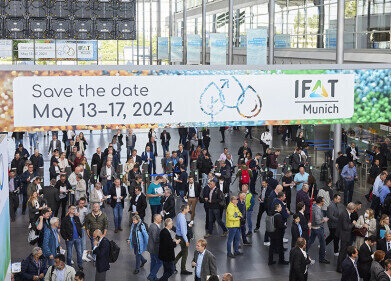Waste Management
Plastic Contributes More Emissions Than Aviation Industry
Feb 06 2024
A new report from plastic waste prevention startup CleanHub analyzes how plastic and the industry around it directly contributes to climate change - finding that it produces more greenhouse gasses than the Aviation and Shipping industries.
Here are the key findings:
- Plastics contribute 3.4% (1.8 billion tonnes) of the world’s greenhouse gas emissions every year - more than either the Aviation(1.9%) and Shipping (1.7%) industries
- 93% of plastics are made with fossil fuels - 14% of all extracted oil goes towards it
- 60% of plastic emissions come from its production, 29% from distribution, 11% from disposal
- Of the 353 million tonnes of plastic thrown away every year, only 9% (31,770,000) is recycled
- Plastic kills millions of seabirds and marine mammals every year
Using industry research, the report highlights the emissions released through plastic production, distribution, and disposal as well as the toxic impact it’s having on wildlife and the environment. With news of microplastics being found in almost everything from food to Antarctic sea ice, the need to understand plastic’s overall contribution to climate and ecosystem change has never been more urgent.
A key finding is that plastics contribute 1.8 billion tonnes of greenhouse gases according to the OECD - 3.4% of overall emissions. This is much more than industries that are notorious for their emissions such as Aviation (1.9%) and Shipping (1.7%), highlighting that moremust be done to lower plastic emissions at each stage of it's production, use, and recycling.
From its start, plastic uses huge amounts of fossil fuels with one in seven barrels of all oil (14%) going towards its manufacturing. Oil production has increased by an estimated 40% since 1990, leading to a huge 629 million tonnes of oil used annually to produce plastic - a number that increases every year. As it currently stands, 93% of plastics are made with fossil fuels, and only 6% from recycled plastics. The remaining 1% are bio-based.
This production process is where the majority - three-fifths (60%) - of plastic’s emissions come from. According to global data, most plastic manufacturing comes from China – where almost a third (32%) of all plastic is made - then North America (Canada, Mexico, and the US combined) creates 18% of the total, with Europe making up another 15%.
The distribution stage of plastic - accounting for packaging, logistics and transport - is another huge contributor, accounting for 29% of the overall emissions. Packaging is responsible for the most plastic emissions (40%), and is a cyclical issue as plastic products inadvertently lead to more packaging produced.
Plastic disposal accounts for 11% of its overall emissions, especially as only 9% of plastic globally is recycled. In the USA, this drops to a tiny 4% - of the remaining plastic, 73% is sent to a landfill (estimated at 27 million tonnes per year), 19% is incinerated (which is also incredibly polluting), and a further 4% is mismanaged or uncollected.
The huge amounts of plastic sent to landfills degrade over centuries and release toxic chemicals as they do such as ethylene, and methane - which is at least 84 times worse for the climate than CO2 over a 20-year period. As much of it is dumped or mismanaged, an estimated 22 million tonnes filters into major water bodies and terrestrial environments.
The microplastics from these cycle into rain clouds and disperse thousands of miles away from where they started, as well as being breathed in regularly by humans and animals alike. Microplastics in clouds also cause more extreme weather events, such as delayed and then heavier rainfall.
Plastic’s impact on animals is also devastating - it kills over a million seabirds, and 100,000 marine mammals every year, as well as negatively affecting around 700 species. Studies estimate that 90% of all seabirds and 52% of sea turtles have ingested plastic, and its ongoing contribution to climate change means over a million species are at risk.
Please see the full report here.
Nikki Stones, Vice President of Marketing at CleanHub, had this to say on the findings:
"This research into plastic’s huge contribution to climate change and the negative consequences on the planet’s ecosystem is at the core of our mission at CleanHub. With a carbon footprint as large as aviation, over a million species at risk of extinction, and microplastics now found in humans, the scale of plastic’s impact is shocking and must be addressed.
There’s never been a more vital time to raise awareness to the dangers of plastic pollution, as well as to promote and use sustainable practices to produce and recycle it more effectively."
CleanHub have included 5 ways that plastic pollution can be stopped from contributing to climate change further:
- Reduce Personal Plastic Consumption - as the average person throws away 221 kg of plastic a year, it’s vital that consumers cut their plastic consumption through sustainable practices.
- Create A Circular Economy - build a system in which products and their parts are reused as much as possible.
- Clean Up Existing Plastic Pollution - as 78 million tonnes of plastic is mismanaged every year, CleanHub's work with businesses is essential to reducing this figure.
- Recycle Plastic Waste - as only 9% of the 353 million tonnes of global plastic waste is recycled annually, it’s hugely important that we increase this figure to stop plastic having more impact on climate change.
- Find Greener Ways To Deal With Non-Recyclable Waste - better ways of recycling plastic must be used, such as co-processing - a method that CleanHub uses that burns plastic at extremely high temperatures to remove toxic elements for it to then be used towards cement production.
Events
May 05 2024 Seville, Spain
May 13 2024 Munich, Germany
May 23 2024 Beijing, China
May 23 2024 Beijing, China
Jun 10 2024 Algiers, Algeria













